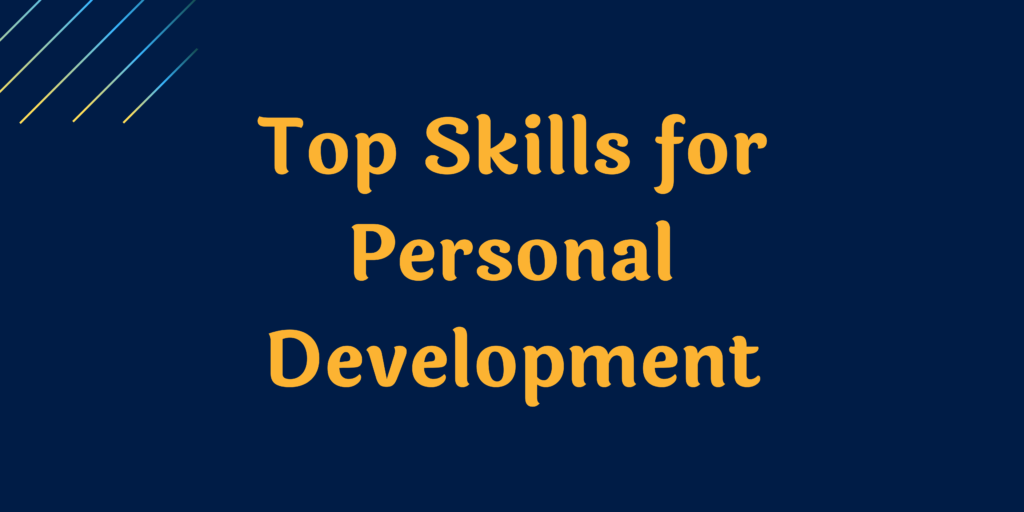Key Takeaways:
- Embracing personal development leads to a balanced and fulfilling life.
- Skills for personal development like time management, setting boundaries, and resilience are crucial for personal growth.
- Employers can support personal development through workshops, mentorship programs, and providing time off.
- Personal development enhances creativity, problem-solving, and overall job performance.
How often do we focus on personal development? In today’s work-centric society, taking time for personal pursuits is often clouded with guilt. After all, isn’t relentless labor the only path to progress? Not quite. As it turns out, hobbies and personal interests can positively influence your career. They help you re-center amidst the chaos of deadlines, encourage the establishment of healthy boundaries, and can stimulate a more creative and innovative approach to your tasks, enhancing your problem-solving abilities! To reap all these benefits, however, you need to first begin by focusing on your personal development. By giving your personal development the same energy and attention you would give your professional advancement, you can truly achieve a balanced life.
Typically, work is a means to achieving freedom and independence. We work for ourselves, to be able to provide for our families, to fulfill our ambitions, and to be a part of a community. But is it enough? Our work-first culture often pushes us towards overworking and premature burnout. This can negatively impact productivity and is often a catalyst behind many of the negative work trends we see today. Whether it is quiet quitting, silent resignation, or presenteeism, an all-work-and-no-play lifestyle generally triggers resistance. If you or your employees are guilty of this, you need to focus on not only creating a positive work environment, but also a healthy one. This quick survey will help you and your team to self-reflect in order to develop a stronger work-life balance.
Once you understand where you and your team stand, here are some strategies to support personal development at work:
- Organize Workshops: Ask your employees about their favorite skills and the ones they’d like to enhance. Understand their varied interests by learning about their passions and hobbies, then take action. Set aside a day that is just about helping your people thrive. Arrange workshops focused on the most popular hobbies and encourage employees to participate in what interests them the most. You can have everything, from painting to sports, and create a guilt-free space where your employees feel encouraged to reconnect with themselves.
- Institute Mentorship Programs: Mentors can help guide younger employees, often serving as the voice of reason when it comes to creating a harmonious balance between work and life. Not only will they be able to help upcoming employees put their best foot forward, but they can help them draw boundaries and focus their energy on what’s most vital for the organization and themselves. As a result, mentorship programs increase engagement and even boost employee loyalty as they help employees map out their growth within your organization in alignment with their career goals.
- Provide Time Off: Think outside of the box. While there are vacation leaves and sick leaves, offer your employees mental health days or even personal development days. Encourage them to take a few days off in a year to focus on hobbies and skills that enrich their lives, making it easier for them to take time for themselves, guilt-free. Just take a look at Etsy, the global e-commerce platform realized that the employees they attract are passionate in the space and often looking to build a small business for themselves. Taking this into account, they created a unique policy empowering their employees to get a few weeks off to pursue their own passions!
Ready to embrace personal development? Subscribe to our newsletter for more tips and strategies!
We’ve seen what organizations and the leadership team can plan for employees, but what can you do for yourself? It’s not always easy to step away from professional commitments in favor of personal pursuits, so here are the 5 skills to ensure your personal development doesn’t take a backseat. Whether you’re picking up a new hobby or polishing your talents, these key skills will help you ensure you give your best on both fronts, the personal and the professional:
- Manage Your Time: This is an easy one – and one of the hardest to implement. To ensure you stay on top of your tasks, start by scheduling. Block out time in your calendar and create lists to visualize all the tasks on your plate – and then get right to it. Time management isn’t an overnight skill, but one that takes practice to perfect.
- Set Boundaries: How often do you say no when a new task is assigned? It’s important to properly assess your bandwidth, understand how much you can accomplish, and protect your personal time with the same tenacity you apply to meeting work deadlines. The best way to start is by prioritizing. If a new task comes your way, take another look at your current workload. What can be pushed to later to make room for this new priority?
- Stay Resilient: Don’t fear failure. You likely won’t get it right the first time. Whether it’s mastering a new skill, setting firm boundaries, or even being fully present in the activities that you enjoy – allow yourself time to adjust. And most importantly, don’t throw in the towel when things don’t go your way.
- Remain Curious: Always look to learn. At the core of personal development is the ability to indulge your curiosity. Explore different activities within your field and beyond. This will help you develop skillsets that better contribute to your career while enriching your personal life by satiating your drive to learn.
- Be Realistic: You’re not going to be an overnight success. Be pragmatic when setting your goals, both on the personal and professional front. This will help you stay motivated as you look to develop your personal skills. On the flip side, having a more grounded perspective when goal-setting will keep you from overcommitting at work. So it’s a win-win!
Here are some practical tips to kickstart your personal development journey:
- Start Small: Begin with manageable goals. For example, if you want to learn a new language, start with learning basic phrases.
- Seek Feedback: Ask for constructive feedback from friends or mentors to understand your strengths and areas for improvement.
- Join a Group: Whether it’s a book club or a sports team, joining a group can keep you motivated and accountable.
- Invest in Learning: Take online courses or attend workshops to continuously build new skills.
- Reflect Regularly: Take time to reflect on your progress and adjust your goals as needed.
Creating a balanced lifestyle where personal development is prioritized can lead to greater success and fulfillment both at work and in personal life. From a management standpoint, encouraging your people to focus on personal development empowers them to put their best foot forward when it comes to work. Embracing personal pursuits allows your employees to not only bring a fresh perspective to their work challenges, but also fosters better collaboration and innovation within teams. By encouraging employees to set boundaries, you will create a positive work culture and win over the trust of your employees, increasing loyalty and retention. Is this the kind of work culture you envision? Then let’s get started! If you’re looking to better understand your employees, their work-life balance, and their overall satisfaction with the workplace, it’s time to ask!
We’d love to hear from you! What are your thoughts on personal development? Have you tried any of the strategies mentioned above? Share your experiences and feedback in the comments section below.





